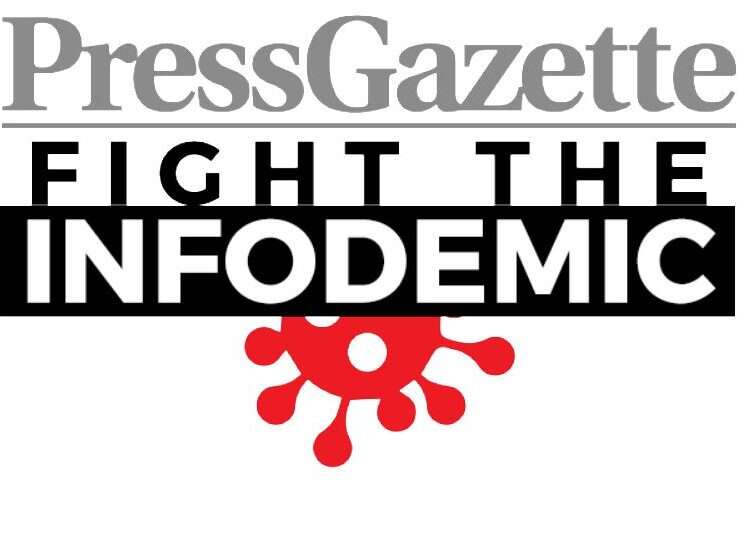
There are two pandemics raging across the world – and one risks being fuelled by the other.
There is a new potentially deadly virus which we are all too well aware of. And then there is the insidious viral spread of misleading content about Covid-19.
At its worst the conspiracy theorists suggest Covid-19 has been confected by the mainstream media to help governments subdue a gullible populace – thus encouraging people to flout official health guidance.
“Fake news” has been a major issue since the election of Donald Trump when enterprising Macedonians found they could make a tidy income from online advertising by creating news websites featuring outlandish and entirely fictional claims about Hillary Clinton.
Four years on the issue of profiting from misinformation has come to the fore again during the coronavirus crisis when online lies can cost lives.
In our latest Press Gazette poll some 3,124 readers over the past week voiced a view as to whether they thought social media companies were doing a good job of combating the spread of fake news and conspiracy theories on Covid-19. More than three quarters said they were doing a bad job.
For journalists this issue is particularly pertinent because they spend much of their time chasing down and trying to kill off misinformation spread on social media about Covid-19 and other issues.
As Independent health correspondent Shaun Lintern told Press Gazette at the start of the UK’s lockdown: “It’s taking an enormous of my time to check rumours that if they’re true would be incredible stories.”
The problem is that even when misinformation is proven to be demonstrably false (like the claim 5G masts cause Covid-19) – social media companies are failing to stop the spread of dangerous lies.
And as we saw earlier this week with the #DCBlackout rumours spreading on social media (false claims there was a media cover-up over attacks on protestors in Washington) – this issue goes far beyond Covid-19.
That’s why Press Gazette today launches a new campaign: Fight the Infodemic.
The aim is stop key platforms like Facebook, Google and Twitter from promoting misinformation about vital issues like Covid-19 and instead to favour evidence-based journalism from bona fide outlets.
Mainstream media may be a term of abuse for the crazies who lurk in the wilder parts of the internet. But from the outset of this crisis every mainstream national news outlet that I can think of – in the UK and the US – has taken great pains to ensure that reporting of coronavirus has been based on the evidence.
Our aims for the campaign are as follows:
- To continue to flag up and expose misinformation and those who are spreading it
- To make the case for the tech platforms to take a more active role in promoting bona fide journalism and blocking dangerous misinformation.
Promoting journalism segues neatly with the Duopoly campaign launched by Press Gazette three years ago.
Up until Covid-19 the UK advertising market was booming (worth more than £20bn a year), but with most new money going to Facebook and Google. The consequences of a digital ecosystem which favours aggregators over originators of content has been seen in recent months as Buzzfeed, Vice and Quartz all announced massive cutbacks.
It is in all our interests – journalists, tech platforms and the general public – to have a digital ecosystem which rewards and promotes trusted evidence-based journalism.
Otherwise we could face a future where we have a well-informed elite (say 5% of the populace) who are willing to pay a subscription for online news. And the wild rest of the free internet could be handed over to the conspiracists and propagandists.
Email pged@pressgazette.co.uk to point out mistakes, provide story tips or send in a letter for publication on our "Letters Page" blog
